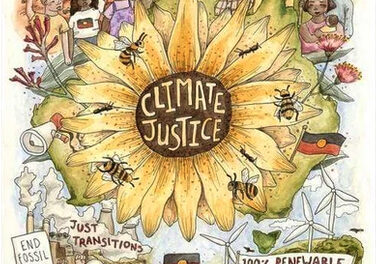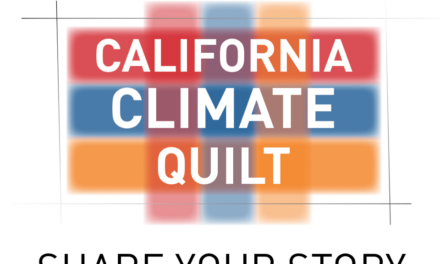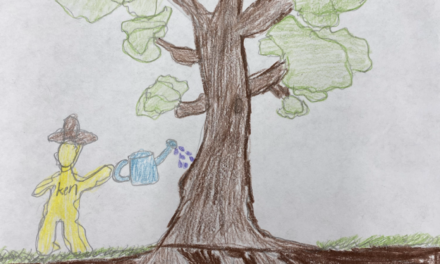Quilt Square #11
I work for a small educational farm on Stanford’s campus. It’s only a little over six acres, but we manage to put out several hundred pounds of produce every week, year round. Most of this goes to the dining halls on campus, while the rest goes to food banks in San Jose.
We have all the water we need; it flows from a main pipe at one corner, through countless little veins, finally dripping out to sustain the crops and fruit trees. We use dozens of gallons a day, and it feels like we have our own bubble, away from the water crisis.
My supervisor told me last week that this will probably be the first year that they ration water. The water source for the farm has always been so private, so secure that the staff seem unsure what to do without it.
I work on Tuesdays, our main harvest days; these are relatively straightforward, and by now have settled into a rhythm: we arrive early, fill wash tubs, fill our cart with the bins, knives, and digging forks we need to bring in the crops, and fill the orders that came in over the past few days. Most of the food goes to the dining halls on campus; the leftovers go to food banks in San Jose. Even though the farm is only six acres, we put out hundreds of pounds of produce per week. One week we boxed over 200 pounds of cucumbers alone; when the tomatoes come in, we will likely harvest dozens of scarlet beefsteaks each week.
An interesting fact about cucumbers and tomatoes: both crops contain over 95% water.
The farm has always been built on sustainable principles, and never used more water than it needs to, but also has the added protection of a college campus and a college endowment. I grew up in the East, and spent nearly five years working on a cattle farm. We had plenty of water but no endowment; in fact, there was so much water we could abuse it, lose it, and without it we would not have been able to grow a single bale of hay to feed the herd.
The drought has developed into a full-blown water shortage throughout the West, but the situation has been difficult for farmers for many years- and now it’s catching up to even the most privileged places.







![zb-picclimatequilt-812×640[1] 95 Percent Water](https://www.kneedeeptimes.org/wp-content/uploads/2021/08/zb-picclimatequilt-812x6401-1.jpg)



